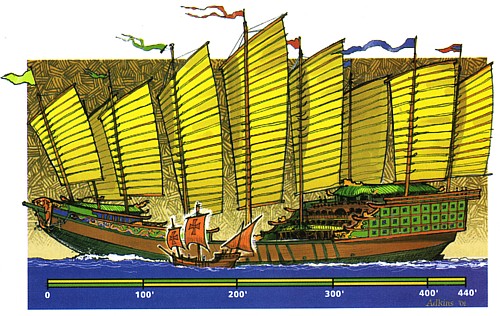Here is my issue with his evidence page: I am looking for an article in a journal that specifically compares genetic markers. Instead, all I get is stuff like this:
Nice paragraph, but this isn't any evidence, it's just filler text. The reason why I'm not taking off those "historical blinkers" is because you haven't given me nay reason to take them off.
Okay...where are the other 30 names? Care to share, and show which genetic markers that are in common with native Americans?
Finally, I come across this:
http://www.1421.tv/assets_cm/files/pdf/1421_biblio.pdf, a bibliography for the book. Can someone indicate where I should look in those 44 pages where he references sources for genetic markers? I searched for the words "genetic", "marker", "dna", "genome" and a few more and came up negative each time. I don't know which chapter he makes a reference to the genetics, so if anyone who has read it more recently can point me in the right direction, I would be thrilled...
Well, that question and answer page wasn't any more helpful than the last. 34 lines of evidence...and some are successfully dated back to before the arrival of Europeans? What about the others? A percentage, please? Maybe some pictures? I remember having a similar gripe with his book when I read it...he didn't seem to have as many pictures of these things he was describing, and he seemed to only listen to sources that gave him the answer he wanted.
I finally found a list of sources for his material on genetics by searching the evidence on his home page...took me long enough to find something.
It's in "Part IV. Papers referred to in a Genetics Study", if anyone else is interested.




